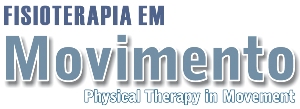Abstract
Introduction:
Aging is often associated with reduced functional capacity (FC) and respiratory muscle strength (RMS).
Objective:
To verify the short-term aquatic and land-based respiratory exercise effects on RMS, pulmonary function, FC and palmar grip strength (PGS) in healthy elderly women.
Methods:
A blinded, randomized, controlled clinical trial was conducted. The sample was composed by 32 elderly women, randomized in two groups: Land-Based Group (LG), and Hydrotherapy Group (HG). Exercise program was performed in two weekly sessions (40 minutes each), during four weeks. Evaluations (anthropometry, manovacuometry and spirometry) were performed; FC by the 6-minute Walk Test (6MWT), and PGS test. All evaluations were performed before and after four-week intervention.
Results:
About RMS evaluation, there was an improvement in the Maximum Expiratory Pressure (MEP) values from 63.8 ± 19 to 74 ± 20 (p = 0.007) of HG. LG had an increase in forced expiratory flow (FEF) between 25-75% of forced vital capacity (FEF 25-75%) from 82 ± 29 to 101 ± 26 (p = 0.04). There was no statistically significant PGS improvement and walking 6MWT distance in both groups. HG presented lower values of Initial Heart Rate and Diastolic Blood Pressure, both pre (p = 0.006) and post 6MWT (p = 0.041).
Conclusion:
It may be suggested that, in the short-term, the respiratory exercise aquatic protocol has positive effects on the MEP and cardiovascular parameters in elderly.
Keywords:
Elderly; Physical Exercise; Hydrotherapy; Respiratory Muscles
